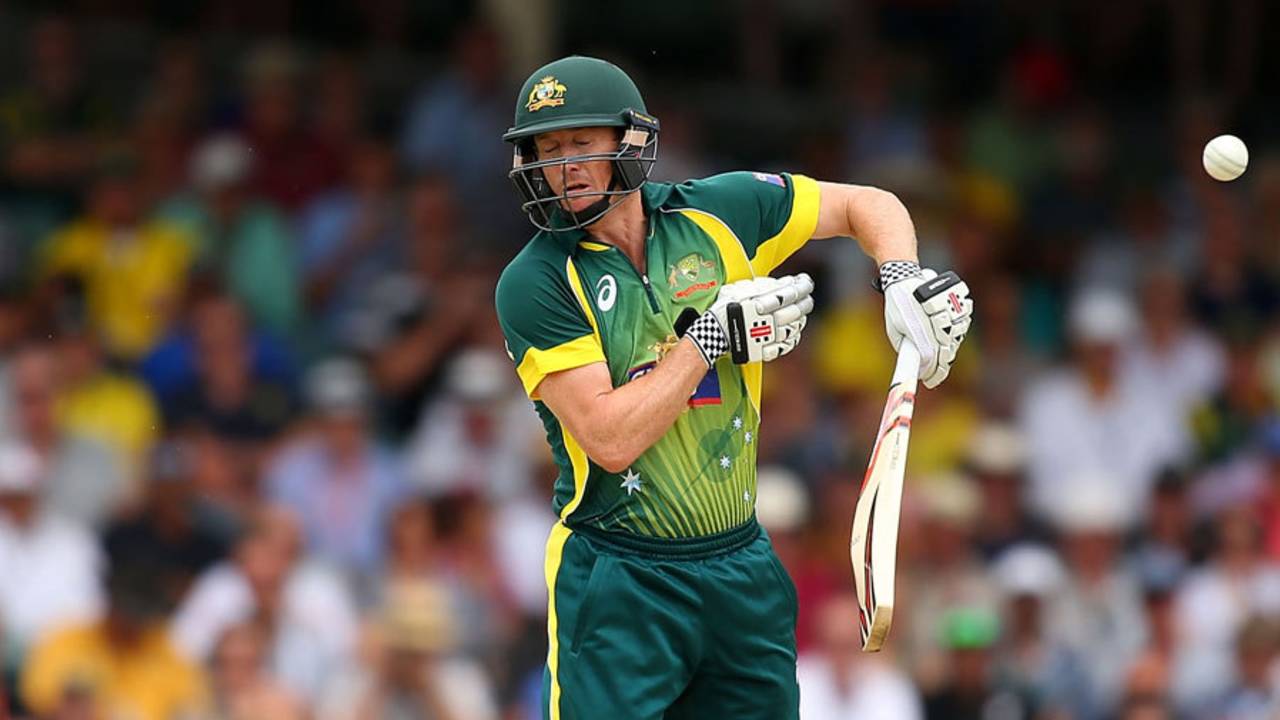At the end of the 10th over, which Stuart Broad bowled, he signaled towards the dressing room, asking for a helmet. He wanted a short leg when he bowled next. When he began the 12th over, though, he had Steven Smith on strike. The helmet remained behind Jos Buttler. After conceding a single first ball, Broad called for the short leg. Now Broad had in his sights the out-of-form George Bailey. On 0 off 12. On a pitch with uneven bounce. There was going to be one soon aimed at the ribcage, but when? First on a length, angling in. Defended to midwicket. Second slightly short, played to cover. Third fuller and wider, left alone. With the fourth he went short, but provided Bailey the width to get off the mark. The fifth one he dug in like he really meant to, Bailey surprisingly didn't seem to be expecting it, and stabbed at it, his head falling back, fending in front of his chest. Easy catch for short leg.
Umpires are usually pretty harsh on bowlers when they stray down leg in limited-overs cricket. With these regulations it can become near impossible to bowl when batsmen like Smith keep moving across and timing everything to leg after taking it from outside off. Just because umpiring for leg-side wides is done by rote, everyone assumed Chris Woakes would be called wide when Smith moved inside the line of a shortish ball and missed it. Smith looked up for a wide too, but Umpire Marais Erasmus was having nothing of it. His hands remained down, and went up only to call over and suggest to Smith that he had moved too far across. A chat between the batsmen - Smith and David Warner - followed during the changeover.
Presumption, they say, is the mother of much misfortune. Certainly it seemed that way when Smith was stumped. Smith, having presumed a delivery from Moeen Ali would turn, skipped past the straight one and then, presuming that Buttler would complete the stumping, did not immediately attempt to regain his ground. But Buttler, perhaps presuming that Smith would make contact with the delivery, did not take cleanly and was grateful for Smith's slow response as he scrabbled to pick up the loose ball and break the wicket just before Smith regained his ground.
Mitchell Marsh was beginning to look imperious. Having rebuilt the innings with Glenn Maxwell, it was important for Australia that he went on to capitalise on his hard work in the final few overs once his partner had been dismissed. Instead, just as he began to move into top gear, he was run out after Brad Haddin called him for an unwise second run against the arm of James Anderson at third man. While Haddin, running to the apparent danger end, made his ground without much trouble, Marsh was left well short of his ground after Buttler collected and threw down the stumps at the bowler's end with a direct hit. It left Australia with two new batsman at the crease and checked their acceleration. Until James Faulkner happened.
The groundstaff had worked hard on the pitch since the end of Friday's match involving India. It was better, too. The bounce seemed far more consistent. But one of the few balls that misbehaved had serious consequences. David Warner was dismissed by a delivery from Anderson that appeared to stop on him a little, bounce more than expected and resulted in a spooned catch to point. To lose such a key player in such an unfortunate manner was disappointing in such a high-profile game.
